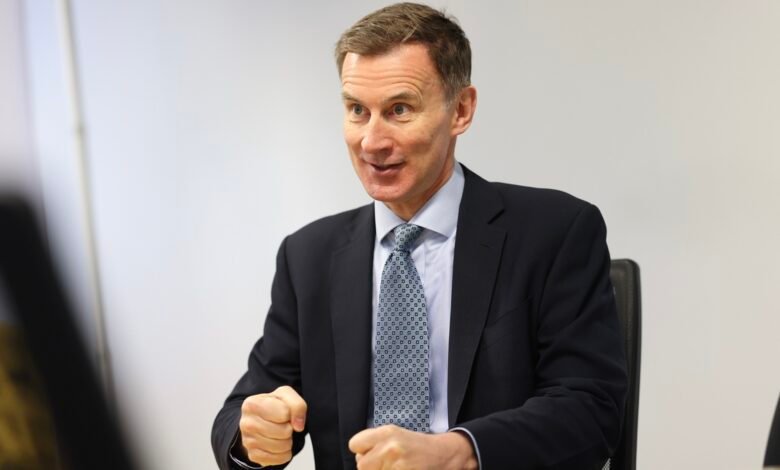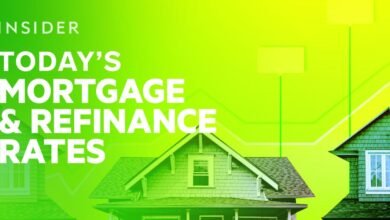What 99% mortgages mean for housing crisis and first-time buyers

What difference would a 99% mortgage make?
A 99% mortgage would see a prospective home buyer pay a 1% deposit on their home with the trade-off that their monthly mortgage payments would be higher as a result or would be paid off over a longer period of time.
The average UK house price is £285,000, according to the Office for National Statistics. A 99% mortgage on a house costing that much would see the mortgagor pay just £2,850 as a deposit. That’s far below the £14,250 they would pay on a 5% mortgage or the £28,500 deposit on a 10% mortgage and so on.
High deposits have proved a huge barrier for people looking to get on the housing ladder, particularly if covering record-high rents affects their ability to save.
Halifax said in January that the average deposit for first-time buyers was £53,414, around 19% of the purchase price of a home. That puts a home out of reach for many, particularly solo buyers or people without help from the ‘bank of mum and dad’.
But the trade-off is that a 99% mortgage could mean higher payments and leave buyers at risk of defaulting on their mortgage.
There were similar warnings last year when Skipton Building Society announced a new 100% mortgage for first-time buyers. That sparked fears of a return to the financial crisis in 2008 when banks buckled after lending large amounts of money to people who could not pay it back.
What would 99% mortgages mean for house prices?
House prices soared to record highs as recently as two years ago but since then they have stagnated and started to fall.
That’s due to the cost of living crisis and rising interest rates affecting buyers’ ability to spend on buying a home and covering the mortgage, particularly after Liz Truss and Kwasi Kwarteng’s mini-budget disaster in September 2022 sent rates surging.
Overall, the average UK house price decreased by 1.4% between December 2022 and 2023, according to ONS, meaning properties typically cost £4,000 less than 12 months previously.
Prices have fallen since the highs of July 2022 when annual inflation was 13.8%. But house-hunters are still paying more than £30,000 more than before the pandemic.
Bringing in a 99% mortgage scheme is a demand-side solution to a supply-side issue.
Reducing the amount people would have to pay as a deposit would open up homeownership to more people, increasing demand in the housing market.
That would make homes more sought after and drive up prices, particularly with sellers able to capitalise on greater spending power too.
The only way prices wouldn’t rise in this case is if supply was increased by building more homes.
The government has a long-standing target of building 300,000 homes per year by the mid-2020s.
It has, so far, failed to hit that mark, delivering around 235,000 homes last year.
Nor are ministers likely to hit the 2019 Conservative manifesto any time soon. With the UK in recession, the construction industry is experiencing a slowdown and the most recent statistics from the National House Building Council (NHBC) show a 44% drop off in new homes being registered in 2023 compared with 2022.
NHBC figures cover between 70 and 80% of new homes built in the UK and are an early indicator of how many homes are set to be delivered in future. All signs point to further falls in 2024, which is bad news for the housing crisis.
The government recently announced it was investing an extra £3bn into delivering 20,000 new affordable homes across England.
But they face an uphill battle in the current climate: almost 7,500 social homes in England were lost through the Right to Buy scheme last year, according to the Local Government Association.
What might 99% mortgages mean for the general election?
The housing crisis is likely to be a big issue on the campaign trail ahead of the general election.
Sunak will be keen to prove his party is the ‘party of homeownership’ as the Tories proclaim themselves to be.
A mortgage guarantee scheme covering 95% mortgages is already in place until June 2025 has allowed more than 39,000 households to buy a home, according to the Treasury.
In fact, the Conservative government has increased the number of people getting on to the housing ladder in recent years.
More than 370,000 people bought a house for the first-time in 2022, according to analysis from Money.co.uk, up from 351,300 in 2019 albeit down from 408,379 buyers in 2021 in a rise driven by a stamp duty holiday.
But there are still a number of people who are trapped in the private rented sector and afford to get on the housing ladder – and they could have more of a say in the polls.
Recent analysis from Generation Rent found the growth of private renting in the past decade has given renters more political power.
The pressure group found 194 constituencies in England have populations containing 20% or more private renters, up from 114 in 2011.
The rise comes alongside a 1.1 million rise in the number of renting households in England in the last 10 years, up to 4.8m.
With frustration over the lack of progress on the Renters Reform Bill and rents hitting record highs, offering a way out of private renting could prove enticing to voters.
But it might take more than 99% mortgages to turnaround the Tory deficit in the polls.
Dan Wilson Craw, deputy chief executive of Generation Rent, said: “It is getting harder for politicians to ignore renters. The renter population continued to grow in the 2010s, but because many of us have been pushed out of city constituencies by high rents and the need for family homes, renters’ political power has grown even more, and could make a difference in many more seats at future elections.”
Do you have a story to tell or opinions to share about this? We want to hear from you. Get in touch and tell us more.
Source link





